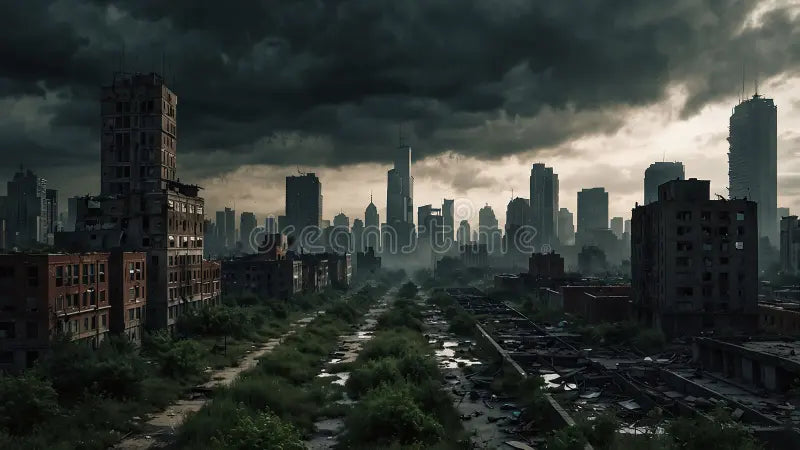
The Great Blackout – When the Lights Were Forever Gone
In a single instant—without warning—the world plunged into complete darkness.
No lights flickered on. No phones buzzed. No screens glowed. The cities once alive with electricity were now silent tombs.
This is not fiction; it is a cautionary tale.
What happens when electricity vanishes forever, and humanity must rebuild from pure, fragile ingenuity?
1. The Event That Shattered Civilization
March 14, 2090. The sun unleashed a solar storm so powerful it fried transformers across continents. Governments failed. Grids collapsed. The digital age ended.
As infrastructure crumbled, the streets deserted. Grocery stores emptied. Hospitals went silent. A fragile global civilization unraveled.
Within 72 hours, we learned: our modern world was built on electricity, and without it, we had nothing.

2. The New Age of Survivalism
Without power, humanity turned to ancient methods and communal resilience:
- Water: Rain collection, hand pumps, solar stills.
- Fire: Hearths, chimneys, wood stoves.
- Food: Preserving, foraging, community gardens.
- Shelter: Insulation, passive solar layouts.
- Communication: Messengers, alert drums, local community boards.
Society fragmented into zones—forced to revive old trades, barter networks, and neighborly know-how.
“Without electrons, only knowledge sustains us.”
3. Urban Blackness – Hidden Dangers
In cities, blackout's impact was catastrophic:
- Elevators stalled. Water didn't flow. Hospitals starved of power.
- Storefronts turned to looting. Sanitation systems failed, triggering disease.
- Crime surged in the shadows of powerless streets.
:contentReference[oaicite:1]{index=1}
Survival became survival skills—not just supplies.
4. Long-Term Survival Fundamentals
To endure long-term, communities needed essential capabilities:
A. Basic Needs & Strategy
- Stockpile: Non-perishables, medicine, lighting tools. Three-month minimum.
:contentReference[oaicite:2]{index=2}
B. Energy Alternatives
- Portable generators (safe outdoor use).
- Solar panels and power banks to sustain radios or small devices.
:contentReference[oaicite:3]{index=3}
C. Key Survival Skills
- Bushcraft: Shelter, fire, navigation, tool-making.
- First aid: CPR, bleeding control, splinting.
:contentReference[oaicite:4]{index=4}
D. Food Production & Preservation
- Start community gardens now.
- Preserve meat and produce for winter storage.
:contentReference[oaicite:5]{index=5}
E. Social Cohesion
- Build trusted networks.
- Establish communication plans and local meeting points.
- Create barter systems and share skills.
:contentReference[oaicite:6]{index=6}
5. Voices from the Fringe
“In the mountains survival skills are essential.” — Reddit user :contentReference[oaicite:7]{index=7}
“...first responders will struggle. When medical care vanishes, first aid becomes lifesaving.” :contentReference[oaicite:8]{index=8}
Even fiction has warned us. Marc Elsberg’s Blackout falls victim to suspicion after power fails across Europe—an eerie reflection of what could go wrong. :contentReference[oaicite:9]{index=9}
6. Preparedness Checklist for You
| Category | Actions to Take |
|---|---|
| Food & Water | Store 2 weeks supply; collect and purify water. |
| Energy | Secure solar chargers, backup battery, or generator. |
| Medical | Learn first aid; stock essential supplies. |
| Skills | Practice fire, shelter, navigation, preservation. |
| Community | Build alliances; define roles, assets, and meeting points. |
Final Thought
The Great Blackout is a scenario—but not impossible. A solar storm, EMP, or cyber-attack could topple modernity overnight.
Electricity is our civilization's lifeblood. Without it, we return to primal challenges.
Are you ready to think beyond convenience? To know survival, not just comfort?
Prepare. Learn. Thrive without the grid.
LEARN TO SURVIVE—BEFORE THE LIGHTS FADE.
Share


